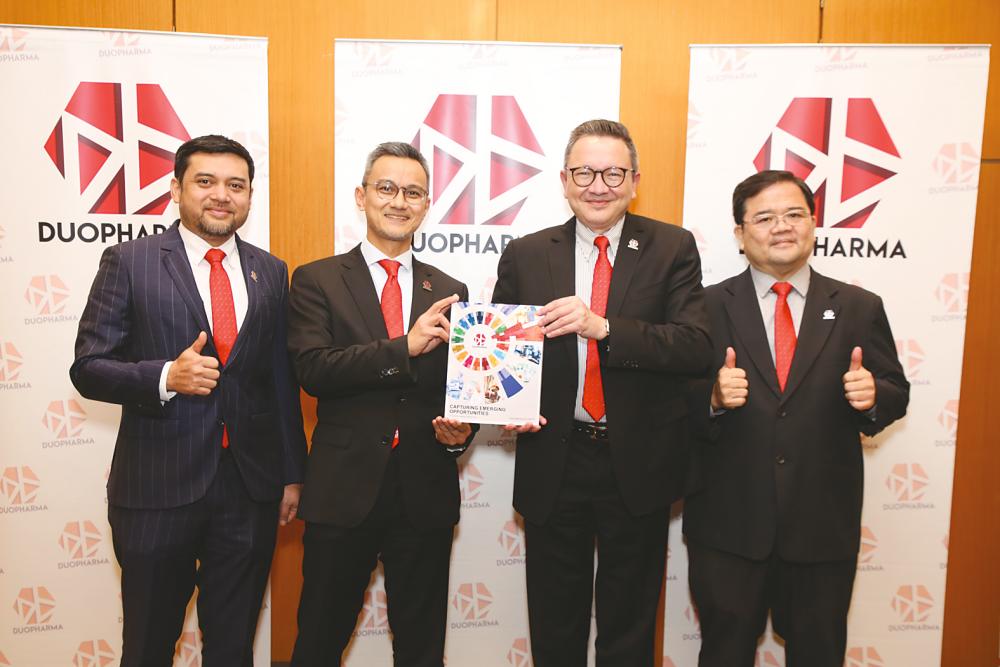KUALA LUMPUR: Duopharma Biotech Bhd sees hope as raw material prices begin to stabilise but a weakening ringgit, increased overnight policy rate, higher electricity tariffs and changes in overtime entitlements pose new challenges for the company.
Its group managing director Leonard Ariff Abdul Shatar said the company employs hedging strategies, both natural and through financial instruments, while closely monitoring the exchange rate.
“The soaring prices of raw materials stabilising in the first quarter of 2023 offers hope for reduced production costs. However, we’ve got weakening in the ringgit. That’s going to be another challenge that we will have to face. We’re doing some level of hedging be it natural or some financial instruments. But we’re watching the exchange rate very closely.
“We were assuming the range of anything between RM4.4 and RM4.6 against USD roughly. I think if you ask me, our comfort range is actually RM4.2 in order to sustain the APPL (the government tender for new approved products purchase list), because a APPL was tendered in 2017, when the exchange rate was about 4.3,” he said.
Speaking to the media after the company’s AGM, Leonard Ariff said it faces another significant hurdle this year, as other unavoidable costs are anticipated to have a greater impact than foreign exchange. The increase in the Imbalance Cost Pass-Through tariff, from 3 sen to 20 sen, is estimated to cost the company up to RM10 million annually.
“This year is particularly challenging. It’s not just forex. I think I do want to highlight, we don’t believe the impact of forex will be as high as the impact of other and avoidable costs. And one of the biggest costs we’re facing is twofold. One is electricity,” he said.
Additionally, changes in the Employment Act regarding overtime entitlements could result in an additional expense of around RM5 million. Inflation further contributes to the rising costs.
“To do exactly what we did last year this year, will be close to RM20 million (the projected impact). So it’s quite sizeable. Obviously, we’re doing everything we can to buffer the impact,” he said.
Leonard Ariff said its going forward includes cost containment into the raw material, hedging, and passing prices across to customers.
In terms of hedging, the company employs techniques both through natural portfolio hedging and financial instruments to manage the currency risks.
“We export about anything between 6% and 10% of our products. We export in US dollars, that gives us the natural hedge purely from portfolio. Separate from that we also do hedging via financial instruments. But again, not a lot, we will never hedge more than 50% because we cannot read the market (in case it goes the other way),” he said.
“The third thing that we do is price adjustment. In other words, we pass on the price increases to the consumers or the buyers. So throughout, we have been adjusting our prices. But obviously for government tenders, the only time you can actually increase the price is when the product is retendered. Private sector allows us to adjust our prices to reflect the cost of input.”
Going forward, Duopharma Biotech is focused on expanding its portfolio to include preventive medicine and early detection solutions, as well as increasing its range of halal and plant-based products.
Duopharma Biotech’s FY22 performance was primarily supported by sales generated from prescription pharmaceuticals under the Ethical Classic Business and the public health sector. In addition, the company holds a three-year contract worth RM375 million to supply Insugen to the Ministry of Health’s facilities from April 29, 2022 to April 28, 2025.
In anoither issue, Keonard Ariff highlighted that the company’s international shareholding base has expanded, with nearly 4% of shares now held by international parties, alongside majority ownership by Permodalan Nasional Bhd (51%) and the Employees Provident Fund Board (10%).















